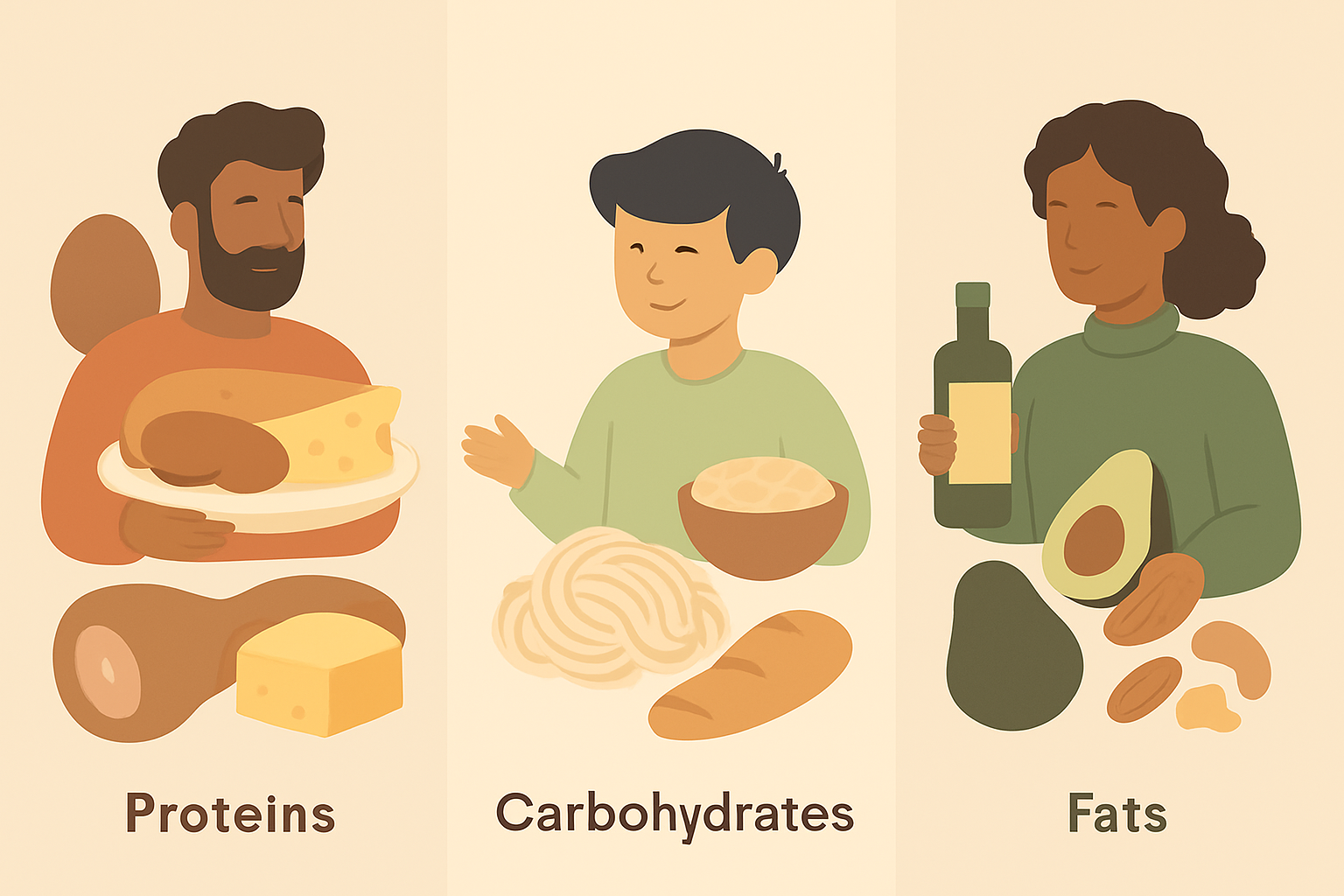
What are Macronutrients?
Macronutrients, often shortened to macros, are the nutrients your body needs in large amounts to function effectively. They provide energy and play crucial roles in bodily functions. The three primary macronutrients are proteins, carbohydrates, and fats.
- Protein: Essential for muscle repair and growth, proteins are composed of amino acids.
- Carbohydrates: The body's main source of energy, carbohydrates can be found in foods like bread, pasta, and fruits.
- Fats: Important for hormone production and cell structure, fats also act as a reserve energy source.
The Role of Protein
Protein is a crucial component of every cell in your body. It helps build and repair tissues, makes enzymes and hormones, and is a building block of bones, muscles, and skin.
- Muscle Growth: Consuming enough protein is vital for those looking to build and maintain muscle mass.
- Hunger Management: Protein is known to increase satiety, helping with hunger management and weight control.
- Daily Intake: Calculate your protein needs based on your body weight, activity level, and health goals.
Understanding Carbohydrates
Carbohydrates provide the body with glucose, which is converted to energy used to support bodily functions and physical activity. They are found in a variety of foods.
- Types: Simple carbs (sugars) and complex carbs (starches and fibers).
- Energy Source: Primary fuel for your brain and a critical source of energy during workouts.
- Moderation: While carbohydrates are essential, balance is key to preventing weight gain. Learn more about carbs and weight management in Do Carbs Make You Fat?.
Importance of Fats
Fats are necessary for your body to function properly. They support cell growth, protect organs, and keep your body warm. Fats also aid in the absorption of some nutrients and the production of important hormones.
- Types of Fats: Includes saturated, unsaturated, and trans fats.
- Role in Diet: Essential fats like omega-3 and omega-6 are crucial for brain health.
- Balance: It's important to choose healthy fats to aid in weight loss and overall health.
Balancing Your Macros
Finding the right macronutrient balance tailored to your individual needs can support weight loss or muscle gain, and contribute to overall health.
- Personalized Approach: Your macro ratio should be based on your specific health goals and lifestyle.
- Calculating Needs: To determine your ideal macros, consider factors like activity level, age, and overall health goals. Check out How to Set Your Macros for Weight Loss for more details.
- Thermic Effect of Food: The energy required to digest food varies by macro type. Proteins, for example, have a higher thermic effect compared to fats and carbs. Learn how this influences weight management in The Thermic Effect of Food: Can Eating Burn Calories?
Frequently Asked Questions
What are macronutrients?
Macronutrients are nutrients the body needs in large amounts, primarily consisting of proteins, carbohydrates, and fats. They provide energy and are essential for bodily functions.
How do you determine your macro ratio?
Finding your ideal macro ratio depends on your personal health goals, activity level, and metabolic rate. Consider using formulas or consulting a nutritionist for tailored advice.
Why are proteins important in a diet?
Proteins are essential for repairing tissues, building muscle, and producing necessary enzymes and hormones. They also help in managing hunger by increasing satiety.